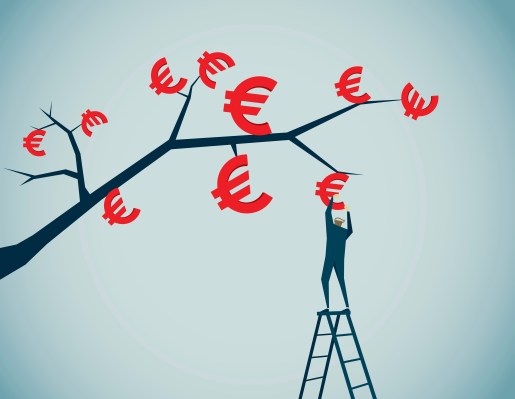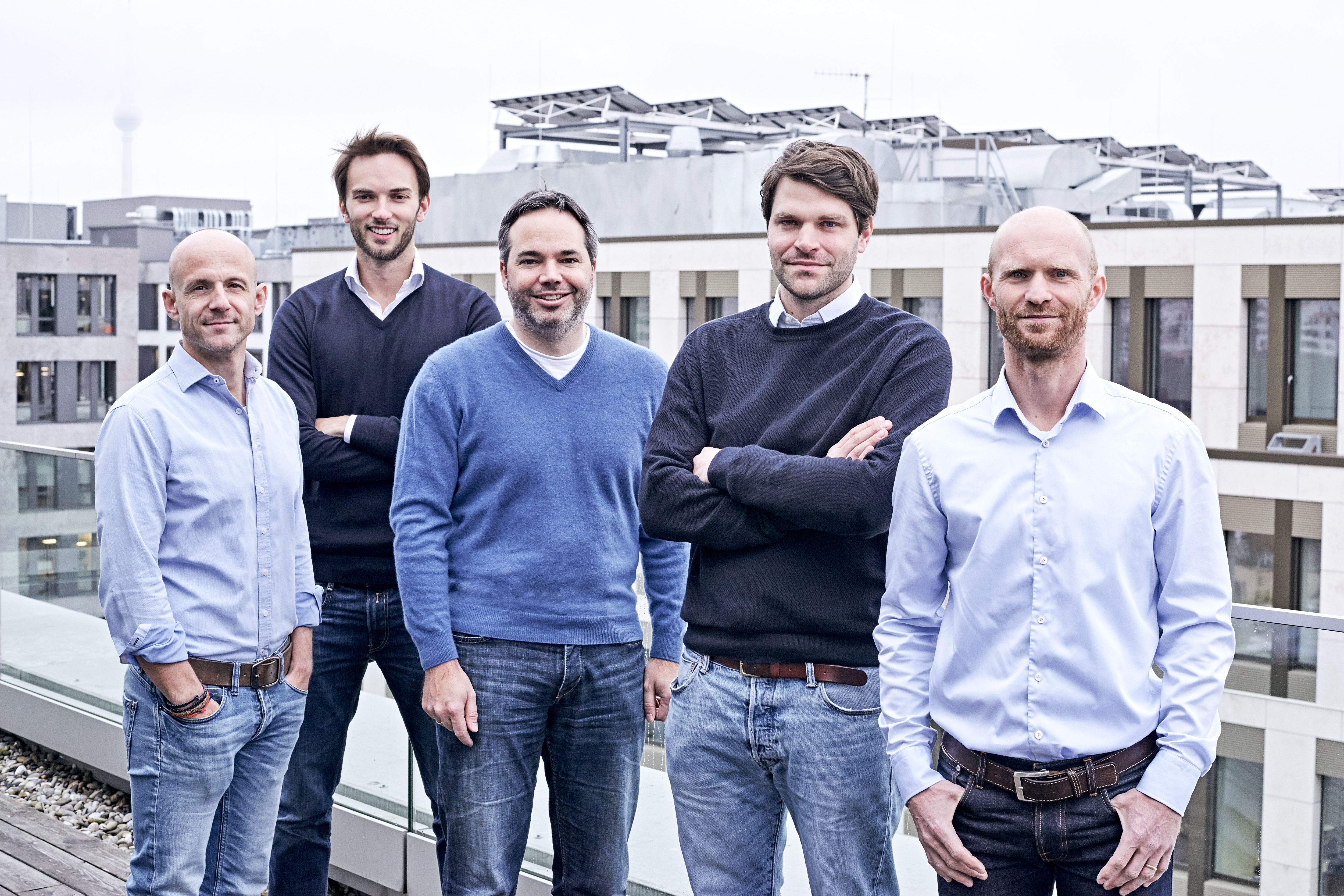Project A, the Berlin-based VC, just raised a new $200 million fund (€180 million) to continue backing European startups at Seed and Series A stage.
In addition, the firm — whose investments include WorldRemit, Catawiki, Voi and Uberall — announced it will now have a presence in London and Stockholm in order to put people on the ground in what it says are “two of its favorite ecosystems.”
What better time, therefore, to catch up with the team at Project A, where we talked investment thesis, why Stockholm and London, and the increasing interest in Europe from U.S. LPs and VCs. Other subjects we touched on include diversity in venture, and, of course, Brexit!
TechCrunch: You last raised a fund in 2016, totaling €140 million, what changes have you noticed since then with regards to the types of companies you are seeing and the European ecosystem as a whole?
Uwe Horstmann: Entrepreneurs definitely matured a lot over the last few years. We see more and more of serial founders who combine drive with experience delivering great results. We also noticed an increase in more tech / product-centric and in B2B models.
This doesn’t come as a surprise as the market for consumer-oriented models started developing much earlier and is now reaching its limits after a few years. Many entrepreneurs gained experience in the Old Economy or have been consulting companies for a few years, learned about the struggle with products and processes first-hand and developed solutions specifically tailored to the industry’s needs.
We also notice a rise in professionalism in company setups and a higher ambition level in founding teams. This is probably also due to a more professional angel and micro fund scene that has developed in Europe.
TC: I note that you have U.S. LPs in the new fund, which I think is a first for Project A, and more broadly we are seeing a lot more interest from U.S. VCs in Europe these days. Why do you think that is, and how does this change the competitive landscape for deal-flow and the ambition of European founders?
Thies Sander: Having our first U.S. LPs on board makes us proud. LPs have noticed that European VC returns have really picked up during recent fund cohorts.
This is due to more professional investing approaches applied by the VCs, a higher quality of investible companies but also due to a stronger relative valuation increase in the U.S. vs Europe. Very well positioned funds like Top Tier Capital have even initiated a separate European VC strategy.
So far Europe has seen a lot of attention from U.S. and Asian investors specifically in the growth stage. This has definitely moved forward towards Series B and sometimes Series A stages.
So you see a lot earlier commitments to European startups from U.S. VCs which is definitely great for the ecosystem. On the other hand, it forces European VCs to invest earlier and/or really think about their positioning vis-a-vis entrepreneurs.
TC: Although Project A has been pan-European for a number of years, you are now opening up a presence in London and Stockholm. Why those two hubs in particular? How do you view their respective strengths and weaknesses?
Anton Waitz: The Stockholm presence is not only covering the local ecosystem but the entire Nordic & Baltic region — Stockholm just happens to be the largest ecosystem where we additionally have made the most investments. We’re amazed by the quality and quantity startups especially considering the size of the region.
Given the fairly small domestic markets, founders from the region often have global ambition. But still, the domestic markets are a great launchpad to show traction and achieve product-market-fit rapidly: Nordic societies are generally quite digital-savvy and have a positive attitude towards innovation — which is easing the path for early-stage startups.
The global ambition also fits our approach very well: With our unique operational support angle, we can actually help in the next phase of European or global expansion — either directly in the market entry or indirectly in scaling up the organization and infrastructure for growth, tackling the challenges that come with early internationalization. This fit is definitely a reason on why Project A is a great fit to the region and why we have chosen to expand there, and we have seen proof in our strong Nordic portfolio and in the close relationships we have with the companies.
On the downside, the small domestic markets are obviously not exclusively great. Additionally, the Nordic countries could still do a little better at collaborating with each other across borders to strengthen the Nordic ecosystem as a whole — but we’ll get there.
As for the U.K., Brexit or no Brexit, London very likely remains the most advanced ecosystem in Europe. The quality of large scale tech companies, mentoring networks, as well as the depth and density of ambitious founders and venture investors makes London a key geographic focus for us.
Building on our previous investments in WorldRemit, Treatwell, Aula, amongst others, we want to continue to be active on the ground and have found ourselves to be relevant partners for U.K.-based startups looking to expand into Germany or the rest of Europe. The only downside right now is the very high cost of living and doing business and to a certain extent, the uncertainty imposed by a potential Brexit.
TC: Project A invests in Seed and Series A stage, with an initial check of up to $7 million. But perhaps you can describe what a typical Seed and Series A startup actually looks like and what would likely make them a candidate for Project A backing?
Uwe Horstmann: At Seed we are often the first VC investor. In Series A, we build on work that was done by the startup with other VCs invested already. Seed has some initial traction, at Series A we see more scaling of the company.
We find increasingly more companies from within our deep dive topics e.g. Industry 4.0, proptech, B2B software, and so on. We specifically like the usual VC metrics, like for example good acquisition vs retention metrics, net negative churn, high NPS and a high degree of defensibility of the business through e.g. technology, network effects, and so on. Specifically, we’re looking for founders who are checking all the obvious boxes but especially are intellectually humble and fast learners, as well as able and willing to hire top talent.
TC: It is interesting that you are setting up shop in London amid such political and potential economic chaos. How does Project A view Brexit? What does a startup-friendly Brexit look like or perhaps there isn’t one and the U.K. remaining in the EU would be optimal?
Anton Waitz: We are big believers in the “European Idea” which has brought us peace and prosperity over the last 74 years. But obviously every country has the right to determine their own destiny.
And whilst we understand the complications of Brexit, especially under a no-deal scenario, we remain bullish on the ecosystem in general. And thus far, since the Brexit vote, the ecosystem seems to remain intact.
TC: You talk up the operation support that Project A provides, which, let’s be honest, is something almost every VC firm claims to offer.
However, you claim to be the only European “Operational VC” where portfolio companies receive support from 100 experts in engineering, marketing, product, design, communications, business intelligence, sales & customer success, organizational building and hiring.
I’m presuming you don’t employ 100 people, right? How does this arrangement work in practice?
Ben Fischer: We do actually employ 100 people! 104 at the moment, to be exact. They are entirely on Project A’s payroll. This is an investment that we are willing to make in order to support our ventures — and we’re convinced that this support is making our portfolio companies better.
Obviously the support is not mandatory. But within the last year, we were approached by more than 30 of our ventures asking for support that we actually delivered. This can be anything: helping on a relaunch, recruiting – we have recruited over 120 people for the portfolio companies over the last 12 months, a new marketing campaign, preparing a new country launch, building a data warehouse, etc.
We constantly benchmark the hourly rates and make sure that our portfolio companies receive our support at a rate that covers our cost and in fact we use parts of the management fee of the fund to subsidize this operation. Plus, the founders know that we deliver support with their goals in mind.
TC: Your investment areas span fintech, digital health, proptech, Industry 4.0, enterprise software, mobility and logistics. Perhaps you can elaborate on a few of these.
Uwe Horstmann: We have always positioned ourselves as a multi-thematic fund looking quite broad but always focusing on four to five specific topics at any given time. When it comes to investing we are very conviction-driven always developing a set of hypotheses grounded in our own research during the due diligence process. Having a distinctly divergent investment and partner team with eminently varying interest and focal points inevitably leads to a very diverse portfolio.
TC: I’m particularly interested in what opportunities still exist in fintech, given the sheer number of fintech companies that have been created in the U.K./Europe over the last 3-8 years. Specifically, it feels like the low to mid hanging fruit of unbundled financial services has been picked and there are also multiple platform plays. What open spaces in fintech are left?
Anton Waitz: We fully agree that the fintech space is more mature in terms of investment opportunities than for example digital health and that the very low hanging fruits might be picked. Nevertheless, we still see many new business ideas coming up addressing more complex processes like improving anti-money laundering with software, which is still today highly manual and costly for banks, or disrupting existing financial asset classes that have been untapped or difficult to access before.
With our latest investments in Carl Finance and Trade Republic this year (already out of fund III) we found two very interesting companies that really solve a problem for their customer. Apart from that, constant regulatory changes, like for example just lately with PSD2, can change the game and enable pan-European business models around banking data and insights that were simply not as scalable before. So we are very much looking forward to meeting FinTech founders that share our vision here.
TC: Digital health, on the other hand, seems extremely early, perhaps due to having even greater regulatory burdens and fragmentation than fintech. How do you see digital health developing over the next 5 years and where are the most immediate opportunities?
Uwe Horstmann: As mentioned before, we share your opinion that innovation in [digital] healthcare is still at the beginning and that a harmonization of the many healthcare systems in Europe is still a very far away vision. Nevertheless, we are confident that there are already today startups for which VC funding makes sense and that have found a business model that scales. Given the mere size of the healthcare spending of each European country, from our perspective unicorns can be built within just a few markets.
At the same time, we see regulators opening up to digital innovation, like the “Fast Track” process that is currently in discussion in Germany (of all countries!), which hopefully will have an impact on how soon patients will get access to innovative products within healthcare. In addition, we also look at opportunities within the pharma sector – the payer ergo being pharma – like data capturing of real-world evidence or patient recruitment to improve clinical trials and drug development.
TC: I could be wrong, but a quick scan of the Project A website reveals that the Partner team is all male. Is this the case and what is the firm doing to improve gender diversity or perhaps this isn’t a priority right now?
Uwe Horstmann: You are not wrong and this is definitely a priority. We know that this is a huge issue in the industry, that all of us need to do more to fix it. At Project A we haven’t managed yet to introduce change on the partner level.
But we want to help tomorrow’s generation of GPs be more diverse – on the gender level, as well as in regards to social background, origin, education, age, etc. This is why in our investment team genders are divided evenly.
We feel that increasing diversity within our own team will also attract diverse founder teams as we all know that founder teams tend to be male. We want to make sure that our team is diverse on a gender level but also in terms of origin, social background, education, age, etc. Diversity does not stop at gender but it’s a good point to start.
Gender or education is not at all a criterion when it comes to deal sourcing. Admittedly, the female founders in the portfolio can be counted on one hand, but we are firmly convinced that the founding spirit will inspire more and more people and that the founding teams will gain in diversity. Our investment themes are very broad – every idea is welcome.
TC: Lastly, startup life is all about assumptions and testing those assumptions in the market ie product-market fit etc. From Project A’s point of view, what assumptions have you made in the last few years that have, so far at least, turned out to be not true?
Thies Sander: E-commerce: From an investor’s point of view it seemed like a great idea 10 years ago. And, don’t get me wrong, we are happy that back then we invested in a few e-commerce models. But the market reached its limits, plus the increasing power of GAFA makes things more complicated.
There are still a lot of exciting companies out there that constantly reinvent themselves thus staying competitive. But the market is clearly consolidating and we don’t expect much growth in this area. At least at the moment…
TC: And, as a counterbalance, what is an example of an assumption or investment you made that has turned out to be more true or happened a lot faster than you originally thought?
Ben Fischer: Clearly, Sennder. We were convinced that the founders are building an exceptionally amazing company and that they are tackling the market in exactly the right way with the right focus.
Still, the speed of this development absolutely surprised us. Another one is Kry where the adoption of telemedicine in the Nordic markets has really been a lot faster than we imagined.


